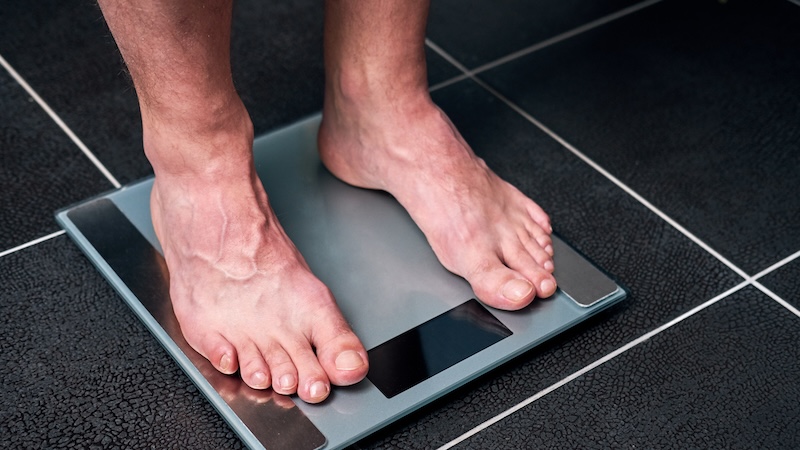Healthy Aging Tips
Securing quality of life can be as simple as cultivating a few good habits

Medical experts offer tips for healthy aging habits for better sleep, healthier eating, physical activity, and mental exercise.
Did you know small tweaks in daily routine can drastically improve your quality of life at nearly any age?
The health benefits of adapting even one or two positive habits can be profound, says Carol Manning, University of Virginia Memory & Aging Care Clinic director. We’re talking shifts around how we prepare go to bed, eating a side salad with lunch, going for evening walks, reading more.
Though simple, such changes can boost overall happiness, alleviate aches and pains, protect later-in-life mobility, and more. In fact, Johns Hopkins University led a study that showed regularly practicing certain healthy habits reduced risks of death from medical ailments by 40 percent among those aged 45 to 64.
Still, altering lifelong habits can be tough, says Manning. Major life transitions – like kids leaving for college, retirement, or pandemic-related shutdowns – provide excellent opportunities for implementation. Committing to positive lifestyle changes during such times can build happiness, confidence, and momentum moving forward.
Below, Manning details four of her favorite healthy aging habits. If adapted, they can help you slow the aging process both inside and out.
Sleep Better and Age Better

For most people, says Manning, getting a good night’s rest gets harder with age. Issues like less time spent in restorative deep sleep cycles and interruptions due to anxiety or discomfort from aches and pains make matters worse.
Too little sleep has been linked to countless medical issues, says Manning. They range from difficulty concentrating to increased risks of obesity, heart disease, and diabetes.
How does one secure better sleep? Manning says most problems stem from snoring, side effects from medication, or underlying medical ailments. So, start by consulting your doctor. Next, try DIY behavioral modifications:
- Fine-tune your body’s circadian rhythm with sleep schedules: go to bed at the same time each night; the same goes for waking up, including weekends.
- Limit naps to 20 minutes in duration. Don’t take naps after 3 p.m.
- Avoid caffeine or alcohol late in the day. No nicotine, period.
- Exercise in the afternoon, but not within three hours of bedtime.
- Make your bedroom a sleep palace. Ramp up comfort levels, maximize quiet and darkness, and avoid temperature extremes.
- Relax before bed. Start by turning off screens one hour before hitting the hay. Calm yourself by breathing meditatively, reading, writing in a diary, or listening to soft music.
Eat Better for Multiple Benefits

By now most people have heard of the Mediterranean diet. It’s based on the foodways of pre-1960s southern Italy and Crete, which were responsible for inhabitants enjoying some of the world’s lowest rates of chronic disease and highest life expectancies.
Back then, families in these areas kept vegetable gardens, fruit orchards, and nut groves, writes Dr. Haitham Ahmed, a cardiology specialist at Johns Hopkins Hospital, in an email. Meats took the form of fresh seafood and farm-culled livestock.
Adapting a similar diet brings incredible benefits. For example, Ahmed led a long-term study of U.S. men and women aged 44 to 84 that showed practitioners were 80 percent less likely to suffer an early death.
Still, transitioning from fried chicken and white-flour tortillas to pan-seared fish and quinoa can be tough, says Manning. That’s why she recommends starting with easy changes.
- For breakfast, sub oatmeal, fresh fruit, and a splash of fat-free milk for bacon, eggs, and pancakes.
- Start lunches with a veggie salad drizzled with olive oil and balsamic vinegar.
- Forgo after-dinner ice cream for a dessert of fresh fruit.
The goal, says Ahmed, is to simply switch one unhealthy item for a healthy one. Allow a few weeks to get used to the changes, then try another.
Get More Physical Activity, More Often

The link between exercise and later-in-life health is well established – it significantly lowers risks of developing Type 2 diabetes, certain cancers, heart disease, and more. But the past decade has brought exciting new findings regarding beneficial impacts on aging processes.
For instance, UVA researchers recently discovered regular exercise “increases the ability of skeletal muscle cells to remove damaged components and other cellular debris.”
Zhen Yan, a UVA professor of cardiovascular medicine, compares the process to a bodily janitorial service. Imagine a crew coming to clean up your cells’ work environment each day in order to maintain functionality. Regular exercise boosts both the number of janitors and their efficiency.
That keeps waste from piling up and causing problems and leads to what experts call “compression of morbidity.” In short, you stay healthy longer in your late years versus spending the final 5 to 10 years battling chronic illness, says Manning.
Luckily, exercise doesn’t have to be vigorous to be helpful, she says. Instituting an after-dinner walk, for instance, is perfect. From there, adding physical activities like gardening, swimming, or pickleball increases benefits.
Thirty minutes of daily physical activity is ideal, wrote Yan. But it doesn’t have to come all at once. Three 10-minute sessions spread throughout the day is equally effective.
Healthy Aging Habits to Exercise Your Mind

Advances in the mid-2000s revolutionized doctors’ understanding around age-related cognitive decline.
“Essentially, we realized regularly exercising your brain can help you maintain healthy cognitive function deep into your golden years,” says Randy Merchant, former Virginia Neuroscience Initiative director. Follow-up studies have shown further benefits, like decreased risk of dementia or Alzheimer’s.
“And the beauty of it is, this is incredibly simple to do,” says Merchant. Suggestions include setting aside 30 minutes a day to listen closely to music, play an instrument, learn a foreign language, or read seriously.
Adding a social element – like a book club – amplifies the effect. It also helps protect against loneliness, which in older adults has been linked to higher rates of depression and cognitive decline.
Adopt these healthy aging habits – small tweaks to your daily routine – to improve your quality of life.
Eric J. Wallace is a freelance journalist whose work has appeared in more than 50 local, regional and national media outlets. He is a contributing editor for Gastro Obscura.


